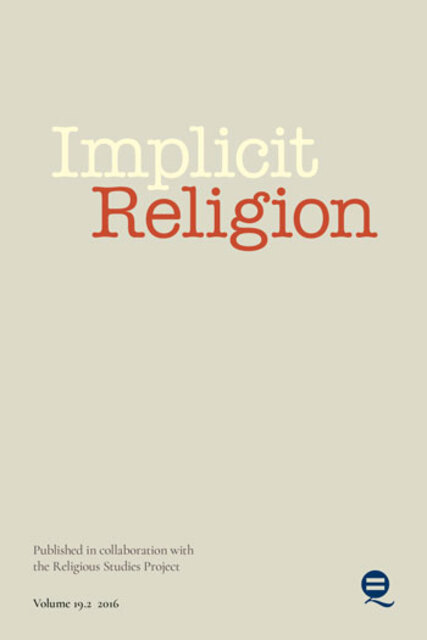From Bad to Worse: The evolving nature of “cult” rhetoric in the wake of Covid-19 and QAnon

Full description
The rhetoric “cult wars,” which began in the 1970s and 1980s, has stagnated in recent decades. Having empirically undermined the “brainwashing” hypothesis, academic research has progressed beyond the classic typologies and discussion of “dangerous cults.” Terms such as “New Religious Movement” became academized in a bid to recalibrate the discussion of religious phenomenon around the individual. However, “cult” rhetoric is still prevalent in popular vernacular, incipient in multiple discourses that redefine the terminology beyond an historic understanding of “religious.” In this article, I outline my initial intention to revisit the terminology currently used in the academy as a result of reflections from participants in my doctoral research. I designed a survey that sought out the thoughts of everyday people in how they perceive the key terms: “cult,” “brainwashing,” “new religious movement” and “minority religion.” Having used the Facebook Advert Centre to widen the reach of the survey, I quickly found that those commenting on the survey were engaging in a battle that is synonymous with the “cult wars” of old. I found that the discourse was predicated upon COVID-19 and a general distrust of “the establishment.” This article analyses the comments engaging with the advert and explores the usage of “cult” rhetoric in contemporary society.
- typeImage
- created on
- file formatjpeg
- file size13 KB
- container titleImplicit Religion
- creatorEdward Graham-Hyde
- issn1743-1697 (online)
- issue24.2
- publisherEquinox Publishing Ltd.
- publisher placeSheffield, United Kingdom
- rightsEquinox Publishing Ltd.
- volume
- doi
We use cookies to analyze our traffic. Please decide if you are willing to accept cookies from our website. You can change this setting anytime in Privacy Settings.
